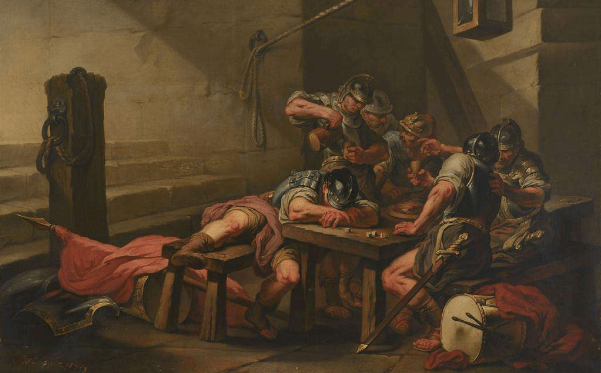Online gambling isn’t just about placing bets and hitting jackpots; it’s deeply intertwined with cultural and societal norms, shaping how people perceive and interact with this form of entertainment. Whether it’s a matter of acceptance levels or the centuries-old traditions behind it, grasping the cultural and societal aspects of online gambling is crucial for everyone involved—from policymakers to regular players. In this article, we’ll take a deep dive into the intricate ways attitudes towards gambling vary across different cultures and societies, uncover the historical and cultural roots of gambling across the globe, dissect the social consequences of online gambling, and brainstorm strategies to encourage responsible gambling practices across diverse cultural landscapes.
Attitudes towards gambling: A cultural lens
Views on gambling differ significantly among various cultures and societies, spanning from widespread embrace to complete prohibition. In certain cultures, gambling holds deep roots within social and religious customs and is perceived as a mode of entertainment and a channel for social interaction. Take, for instance, Western societies like the United States and the United Kingdom, where gambling is commonly linked with leisure and pleasure. Here, $1 deposit casino and betting shops are seamlessly integrated into the fabric of entertainment options, contributing to the diverse landscape of recreational activities available.
On the other hand, certain cultures, particularly those with strong religious or moral convictions, may have more negative perceptions of gambling. In many Islamic countries, for instance, gambling is strictly prohibited under Islamic law, reflecting broader cultural norms regarding risk-taking and financial speculation. Similarly, in countries with socialist or communist ideologies, such as China and North Korea, gambling is often viewed as a capitalist vice and is heavily regulated or banned altogether.

Historical and cultural roots of gambling
The practice of gambling has deep historical and cultural roots, dating back thousands of years across various civilisations. In ancient civilisations such as Mesopotamia, Egypt, and China, gambling was a common pastime, with dice games, card games, and betting on sports events prevalent among the population. These early forms of gambling often had cultural and religious significance, serving as rituals to invoke luck or divine favour.
Over time, gambling evolved and spread to different regions, influenced by cultural exchanges, trade routes, and colonisation. In Europe, for example, gambling became popular during the Middle Ages, with the emergence of casinos and gambling houses in major cities like Venice and Paris. The cultural impact of gambling can still be seen today in the architecture of historic casinos and the proliferation of gambling-related symbols and motifs in art and literature.
Social implications of online gambling
The rise of online gambling has brought about significant social implications, raising concerns about addiction, financial hardship, and the erosion of traditional values. The convenience and accessibility of online gambling platforms have made it easier for individuals to engage in excessive gambling behaviours, leading to a rise in problem gambling rates worldwide. Studies have shown that online gamblers are more likely to experience financial difficulties, relationship problems, and mental health issues compared to non-gamblers.
Furthermore, the anonymity and lack of face-to-face interaction in online gambling environments can exacerbate the risks of problem gambling, as individuals may feel less inhibited and more inclined to take risks. Vulnerable populations, such as adolescents and individuals with pre-existing mental health conditions, are particularly susceptible to the negative effects of online gambling.
Promoting responsible gambling behaviours
In light of these concerns, promoting responsible gambling behaviours is paramount in mitigating the social harms associated with online gambling. This requires a multifaceted approach that takes into account cultural diversity and societal norms. Strategies for promoting responsible gambling within diverse cultural contexts include:
- Education and awareness: Providing information and resources about the risks of gambling and promoting responsible gambling practices through public awareness campaigns, educational programs, and online resources.
- Regulatory measures: Implementing robust regulatory frameworks to ensure fair and responsible gambling practices, including age verification procedures, responsible gambling tools, and measures to prevent underage and problem gambling.
- Cultural sensitivity: Tailoring responsible gambling initiatives to the cultural and social norms of different communities, considering factors such as religious beliefs, attitudes towards risk-taking, and perceptions of gambling.
- Cultural competency training: Providing training programs for gambling support professionals, such as counsellors and helpline operators, to enhance their understanding of cultural nuances and sensitivities, enabling them to better address the diverse needs of individuals from different cultural backgrounds.
- Community engagement: Collaborating with community organisations, religious institutions, and cultural leaders to raise awareness about responsible gambling and provide support services for individuals and families affected by problem gambling.
- Support services: Establishing comprehensive support services, including helplines, counselling services, and self-exclusion programs, to assist individuals struggling with gambling addiction and provide them with the help they need to regain control of their lives.
By adopting a culturally sensitive and holistic approach to responsible gambling, policymakers, industry stakeholders, and community leaders can work together to address the social implications of online gambling and promote healthier gambling behaviours within diverse cultural contexts.
Conclusion
The cultural and societal aspects of online gambling hold considerable sway in influencing perceptions of this activity and its effects on people and societies. By delving into the historical origins of gambling, grasping cultural perspectives on risk-taking and financial ventures, and introducing responsible gambling measures customised to various cultural settings, we can alleviate the social repercussions linked with online gambling and advocate for safer and more conscientious gambling habits on a global scale.



